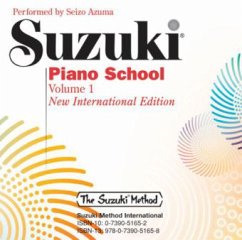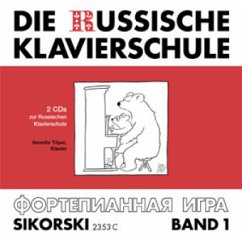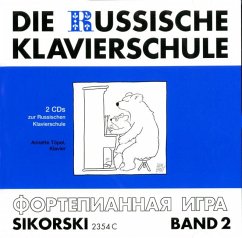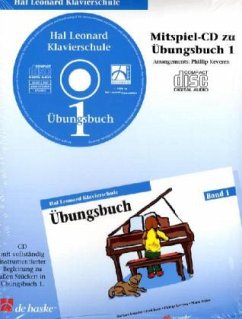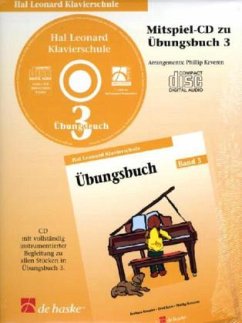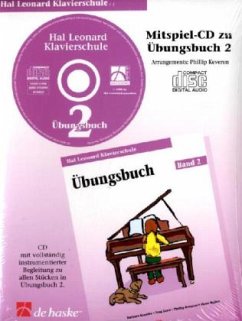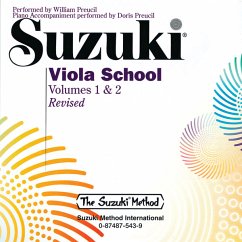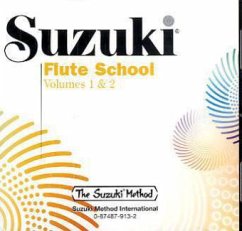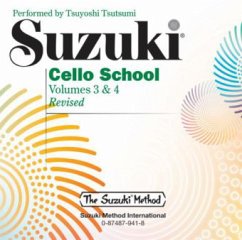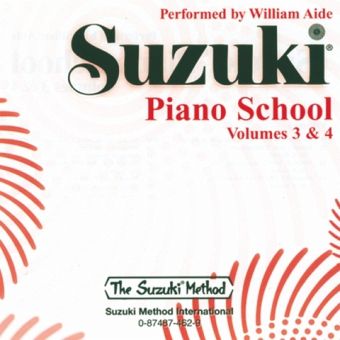
Audio-CD
Suzuki Piano School
AV
Interpretation: Aide, William

PAYBACK Punkte
10 °P sammeln!



The SUZUKI METHOD of Talent Education is based on Dr. Shinichi Suzuki's view that every child is born with ability, and that man is the son of his environment. According to Dr. Suzuki, a world-renowned violinist and teacher, the greatest joy an adult can know comes from developing a child's potential so he/she can express all that is harmonious and best in human behavior. Students are taught using the "mother-tongue" approach. This CD contains the repertoire from Suzuki Piano School Volumes 3 & 4.Recording artist William Aide, Professor Emeritus, Rupert E. Edwards Chair in Piano Performance at...
The SUZUKI METHOD of Talent Education is based on Dr. Shinichi Suzuki's view that every child is born with ability, and that man is the son of his environment. According to Dr. Suzuki, a world-renowned violinist and teacher, the greatest joy an adult can know comes from developing a child's potential so he/she can express all that is harmonious and best in human behavior. Students are taught using the "mother-tongue" approach. This CD contains the repertoire from Suzuki Piano School Volumes 3 & 4.
Recording artist William Aide, Professor Emeritus, Rupert E. Edwards Chair in Piano Performance at the University of Toronto, received his musical degrees from the University of Toronto and the Juilliard School of Music. He also holds a diploma and licentiate from the Royal Conservatory of Music, Toronto. (ARCT, LRCT) Professor Aide has recorded the twenty-four Chopin études, the Brahms cello sonatas with Ofra Harnoy, and the complete Suzuki piano method repertoire. He has concertized throughout Canada, the United States and the former Soviet Union.
Recording artist William Aide, Professor Emeritus, Rupert E. Edwards Chair in Piano Performance at the University of Toronto, received his musical degrees from the University of Toronto and the Juilliard School of Music. He also holds a diploma and licentiate from the Royal Conservatory of Music, Toronto. (ARCT, LRCT) Professor Aide has recorded the twenty-four Chopin études, the Brahms cello sonatas with Ofra Harnoy, and the complete Suzuki piano method repertoire. He has concertized throughout Canada, the United States and the former Soviet Union.
Dieser Artikel kann nur an eine deutsche Lieferadresse ausgeliefert werden.
Produktdetails
- Erscheinungstermin: 15. Juni 1995
- Hersteller: Alfred Music Publishing,
- EAN: 9780874874624
- Artikelnr.: 24897985
Herstellerkennzeichnung
Die Herstellerinformationen sind derzeit nicht verfügbar.
Für dieses Produkt wurde noch keine Bewertung abgegeben. Wir würden uns sehr freuen, wenn du die erste Bewertung schreibst!
Eine Bewertung schreiben
Eine Bewertung schreiben
Andere Kunden interessierten sich für


